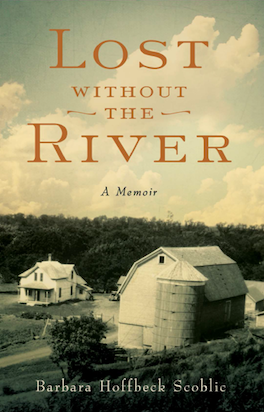Seed of Doubt, my novel in progress, was inspired by a true crime that I researched for more than a year with the intention of writing an article for a Philadelphia Inquirer series. However, after reading 2,000 pages of trial transcripts, examining boxes of police records, and interviewing nearly everyone (including the accused) connected to the 1977 murder—already sixteen years old when I began the project in 1993—I uncovered scraps of previously overlooked material that convinced me that, although the case was considered closed and the suspected perpetrator convicted and sentenced, justice had not been served.
Instead of abandoning the project, I decided to create a psychological mystery, a fictional account of what might have happened. Since then, I’ve written five drafts of the novel in the past twenty-eight years—each version falling short of my vision. I’ve spent so many years living with Seed of Doubt, old friends refer to it as “The Ever-Loving,” as in, “How’s the ever-loving going?” They’ve all, at one time or another, suggested (for my own sanity) that I forget about it entirely and start writing another book. I ignore them respectfully, keep my own counsel, and persevere.
My literary journey is like that of a hiker along the Appalachian trail, which passes near my home. Undaunted by the 2,000 mile trek ahead, the avid hiker focuses on walking as far as possible each day, often taking years to complete the trail in short sections and in no special order, but in the end, the total goal is met.
Except for weekends and vacations when I could write during the day, my early drafts were written at night staring into the blue light of a computer. Although writing was at the heart of my work as a communication professional, creating fiction required something more of me—an unflinching emotional investment that fueled my desire to continue. Without realizing it, I was teaching myself how to write a novel by writing one; for me, those drafts were exercises in Novel Writing 101.
Through it all, I was experimenting. Each draft was built on the same foundation, but not the same design. In one version, a minor character becomes the story’s narrator. In another, the POV changes from the protagonist to that of another character. At times, I feel that my novel has already been written, and I am simply trying to piece it back together. But, mostly, I listen to a voice that comes through me, not from me. My writing is best when I stop writing, and give in to the story, letting it take over. One night, it killed off one of my main characters. I lost sleep over it. In the morning, upon taking another look, I discovered that the unintentional plot twist had opened up new layers of the story, none of which would have been written had I not allowed it to intervene.
At some point, I decided my second draft was ready for prime time. I went online to learn what makes a good query letter, and then, I selected ten New York City literary agents and sent off the letters. I eventually received six replies, one of which asked to read the first seventy-five pages of my novel. I went through it page by page. When I was satisfied there was no more to be done, I sent it off. I received a personal rejection note a few weeks later citing something like: although well-written, the story lacks an authoritative voice that resonates. I was devastated but more determined than ever to rewrite it until I got it right.
The plodding process of creating a fictional world that lives and breathes seems sometimes impossible. I’m well aware of the gap that exists between what we envision and what we achieve. In his poem “The Hollow Men,”T. S. Elliot wrote: Between the conception / And the creation / Between the emotion / And the response / Falls the Shadow….
In 2006, I moved to Southern Appalachia planning to write full-time. But fate intervened, and I started making films instead. My first independent documentary, Outcasts: Surviving the Culture of Rejection, was released in 2014. One Night in January: Counting the Cost of Homelessness was released in 2020.
In between the two feature-length films, I wrote and directed two narrative shorts, Dark As Night (2015) and A Free Man (2016), as part of a planned trilogy which was never completed. The scripts were based on my novel; the resulting films were a manifestation of my fictional world. To make it happen, I scouted locations in Tennessee and Southwest Virginia until I found the perfect setting, a rural village right out of the seventies. Unexpectedly, my side trip into filmmaking made me a better writer. Not only had I filmed my fictional world—I learned to eliminate only what was important to the story. “Less is more” became my mantra.
And now, after all these years, I can see the end in sight. But along the way, I learned to write a novel, to compose the perfect query letter, and finally, to understand that although my literary journey has often been wayward, I’ve never been lost.
I’ve lived with Seed of Doubt for nearly three decades. I hope that after this final version, the story will finally leave me in peace. I have more to do. In the wings, waiting patiently for me to finish The Ever-Loving, are the embryos of two more novels to be written. I can’t wait.






